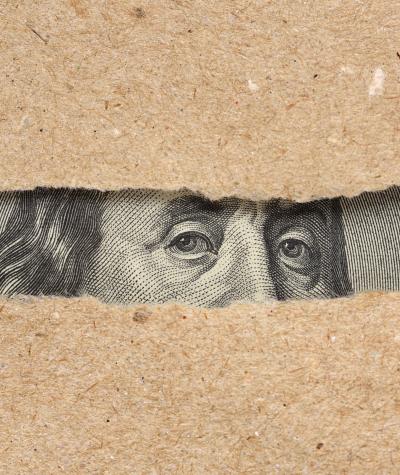Transparency in elections is vital to ensuring that voters know who is spending money to influence their vote. Yet wealthy special interests undermine transparency through secret spending groups (sometimes called “dark money” groups) and straw donor schemes, which are both tactics used to circumvent campaign finance laws and conceal who’s spending money on election influence.
The 2024 election cycle is projected to have the highest spending from dark money groups and shell companies of any election cycle, with $162 million in such spending in 2023 alone.
Pop-up super PACs are a particularly insidious type of practice used to prevent voters from accessing accurate information about election spending. They are formed shortly before an election and carefully time both when they receive donations — which predominantly come from deep pocketed, special interest donors — and when they spend money. These delays are timed to evade campaign finance disclosure deadlines, so that the super PAC won’t have to disclose its donors until after the election is over.
That’s how these carefully planned super PAC operations can spend vast sums on elections while keeping voters in the dark about the special interests who are trying to influence the public.
Pop-up super PACs aren’t new — special interests used them to conceal their influence in the 2020 and 2022 elections. Since then, the people behind these PACs have continued to game the system with the same strategies.
In a 2024 Oregon congressional race, each of the four candidates in a Democratic primary election raised and spent just $600,000-$900,000 apiece on their campaigns, but a new super PAC called “Voters for Responsive Government” spent substantially more — at least $3.25 million — assailing Susheela Jayapal, a former Multnomah County commissioner running in the primary. These attack ads, described by Oregon reporters as “incendiary” and “somewhat misleading” drew a lot of attention during the election.
Yet, when Voters for Responsive Government released its first disclosure report, it did not list any donors — presumably because the super PAC’s operators collaborated with donors to strategically time donations so that none of them would have to be disclosed until the disclosure deadline that fell after the May 21 primary election. As a result, voters cast their ballots unaware of who was responsible for spending a whopping $3.25 million trying to influence their votes.
Similarly, in the 2024 Republican party primary in Pennsylvania’s 7th Congressional District — a toss-up race that is critical to determining which party holds the majority in Congress — candidate Ryan Mackenzie faced attacks from a pop-up super PAC called the “Integrity Leadership Fund,” which criticized his vote to expand mail-in voting. Although Mackenzie ultimately prevailed in the primary, voters were left in the dark about who was behind the ad until after the primary.
Now, Integrity Leadership Fund is now openly supporting Mackenzie’s Democratic opponent in the November general election, strongly suggesting that the super PAC’s anti-Mackenzie ad was an attempt by Democrats to manipulate the Republican primary and deliver Democrats’ desired general-election opponent. Voters have a right to know before a primary election that partisan actors are behind an attack ad.
Pop-up super PAC operators across the country are using deceptive strategies to manipulate voters. Without reform, it seems likely that special interests will continue using these tricks to hide large sums of election spending, which amplify special interests’ voices in the political process, while leaving voters in the dark when deciding how to evaluate the true motivations and goals of those spending money to persuade them.
Voters deserve action to address this clear problem, and there are solutions available. For example, Congress could close the pop-up super PAC loophole by requiring that political committees disclose all contributions within two or three days if the contributions are received within one month of an election.
To promote transparency and ensure voters are equipped with adequate information before they vote, Congress must act to protect voters’ right to know who is spending money on elections.
This blog is authored by CLC Legal Intern Carolyn Daly.
